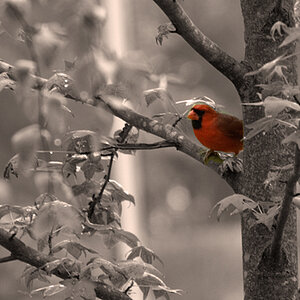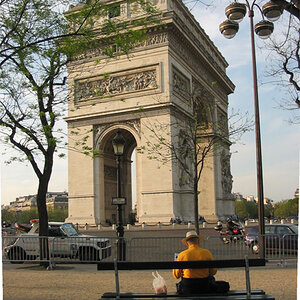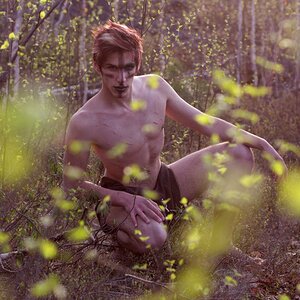Navigation
Install the app
How to install the app on iOS
Follow along with the video below to see how to install our site as a web app on your home screen.

Note: This feature currently requires accessing the site using the built-in Safari browser.
More options
You are using an out of date browser. It may not display this or other websites correctly.
You should upgrade or use an alternative browser.
You should upgrade or use an alternative browser.
why film photography?
- Thread starter Asia
- Start date
Hamtastic
TPF Noob!
- Joined
- Mar 9, 2010
- Messages
- 87
- Reaction score
- 0
- Location
- USA
- Can others edit my Photos
- Photos NOT OK to edit
Film enthusiasts claim that digital cameras kill the art of photography.
Which is exactly what the dry plate photographers said about film, and the collodion process photographers said about dry plate, and the Daguerreotype photogs said about collodion....
I am looking for information about particular scenes which you could capture only while using analog camera (or only with digital one).
Film does not need electrical power to expose. In any situation where power supply could be an issue film has an obvious advantage.
With very long exposures digital sensors heat up and get noisy. It depends a lot on the camera and personal taste where the limit is, but IMO it's in the 10 - 20 min range. Besides heat and noise there are battery issues again. I don't really know how long my batteries would expose for, but I'll guess that all night star trails (in a single exposure) are out.
On the other hand digital doesn't have reciprocity failure problems like film. A 20 min digital exposure is 3 or 4 stops more exposure than a 20 min film exposure at the same ISO.
Think about what actually makes a compelling image. So little of it has anything to do with the tools or is truly limited to one process or technology. To the collodion and Daguerreotype photographers an old Nikon F and a new Nikon D700 would seem very similar, and very, very different from the cameras they were using.
Instant preview is nothing new. Pros have been using Polaroid for a long, long time. I think there is little debate among visual artists that being able to use your eyes when creating visual art is a good thing. It's just a new feature for the noobs and rubes.
My walls are hung with 8"x10" to 20"x30" photos. They are a mix of hand printed silver gelatin prints from medium format and 4x5 film, machine printed silver gelatin prints from files, hand printed chromogenic prints from 35mm and medium format film, and machine made chromogenic prints from both film and files. Obviously the silver gelation can only be BW, but some of the c-prints from files are BW too. All are framed and matted so you can't see the paper edges. I've regularly asked pros and enthusiasts which are from which, and the answers are all over the place. There is one photo that almost always gets picked as digital: it's a hand printed, 13"x20"-ish c-print from 35mm Kodak Royal Gold 25. I think it's the super fine grain and saturated colors that cause folks to think it's digital.
"Photography has not changed since its origin except in its technical aspects, which for me are not important." -Henri Cartier Bresson
maris
TPF Noob!
Here is a rather extended and somewhat abstract polemic on film photography:
What the pictures look like doesn't count in the long run. Digital picture making can, or soon will be able to, replicate the surface appearance of any medium; film, paint, pencil, whatever.
If you want to look pictures that have the same relationship to subject matter as film based pictures then nothing touched by digital technology is worth looking at.
A film based photograph happens when a physical sample of subject matter travels across space, penetrates the sensitive surface, and occasions picture forming marks where it penetrates. If you want this then don't bother with "digital". But why would you so want?
A film photograph is physically, necessarily, and materially bound to its subject in the same way as a graphite rubbing, a footprint, or a silicone rubber cast. There is no virtual component. It is a straight line case of a substance direct on substance action. If this is what you want then you must use film. Don't bother with digital.
The film photograph is utterly powerless in depicting subjects that do not exist. The film photograph is a certificate for the existence of its subject matter. Physical subjects are a necessary prerequisite for the possibility of a film photograph. If you want pictures of unicorns then you have to go digital. Film won't help you.
Successful pictures in film photography require that the subject and the film have to be in each others presence simultaneously and that they have to be directly and physically connected at the same (relativistically adjusted!) moment. Thats why film photographs really do capture moments in time. Furthermore an actual film negative of the EiffelTower, say, cannot exist without the film itself having made a trip to Paris. If this is the kind of reality connection you want then don't bother even looking at digital. Remember, a digital picture of a dinosaur is possible without a trip back to the Jurassic.
Film photographs can do nothing about subjects which may have existed in the past. If you want scenes from ancient Rome or portraits of Jesus then digital can deliver them. But don't presume they are equivalent to film photographs.
The future is similarly a closed book to film photographs. Photographs can only be made in the implacable present moment. Try as you might you won't get the Star-ship Enterprise on film, it hasn't been built yet, but digital will deliver you a whole Star Trek movie through the wonders of CGI.
No film photography can go into landscapes of the imagination or into the topography of dreams. Digital does this easily. All one needs is a computer, a few image files, and some nice software for pushing pixels. Remember, hallucinations don't register on film.
Film photography cannot address subject matter which full well exists but is momentarily blocked from sight. If you want pictures of something you just missed then digital is your only recourse. Whether anyone would believe such a picture is a moot point. A digital picture offered under oath is a mighty suspicious thing except to the terminally naive. A film photograph requires no oath. It is true to subject although that in itself is no guarantee that a casual observer won't misidentify the subject
The sole source of energy for a film photograph is the subject and the internal chemical potential energy of the photographic materials. External energy sources, electricity for example, are not at all required. My film camera, film, and chemicals would work just as well in Shakespeare's day or the distant future when dark energy has long replaced electricity.
Digital of course delivers "appearances" and that can be entertaining but if you dont want to live in a world where "seeming" is indistinguishable from "being", where looks like means same as, then film photography is what you must do.
What the pictures look like doesn't count in the long run. Digital picture making can, or soon will be able to, replicate the surface appearance of any medium; film, paint, pencil, whatever.
If you want to look pictures that have the same relationship to subject matter as film based pictures then nothing touched by digital technology is worth looking at.
A film based photograph happens when a physical sample of subject matter travels across space, penetrates the sensitive surface, and occasions picture forming marks where it penetrates. If you want this then don't bother with "digital". But why would you so want?
A film photograph is physically, necessarily, and materially bound to its subject in the same way as a graphite rubbing, a footprint, or a silicone rubber cast. There is no virtual component. It is a straight line case of a substance direct on substance action. If this is what you want then you must use film. Don't bother with digital.
The film photograph is utterly powerless in depicting subjects that do not exist. The film photograph is a certificate for the existence of its subject matter. Physical subjects are a necessary prerequisite for the possibility of a film photograph. If you want pictures of unicorns then you have to go digital. Film won't help you.
Successful pictures in film photography require that the subject and the film have to be in each others presence simultaneously and that they have to be directly and physically connected at the same (relativistically adjusted!) moment. Thats why film photographs really do capture moments in time. Furthermore an actual film negative of the EiffelTower, say, cannot exist without the film itself having made a trip to Paris. If this is the kind of reality connection you want then don't bother even looking at digital. Remember, a digital picture of a dinosaur is possible without a trip back to the Jurassic.
Film photographs can do nothing about subjects which may have existed in the past. If you want scenes from ancient Rome or portraits of Jesus then digital can deliver them. But don't presume they are equivalent to film photographs.
The future is similarly a closed book to film photographs. Photographs can only be made in the implacable present moment. Try as you might you won't get the Star-ship Enterprise on film, it hasn't been built yet, but digital will deliver you a whole Star Trek movie through the wonders of CGI.
No film photography can go into landscapes of the imagination or into the topography of dreams. Digital does this easily. All one needs is a computer, a few image files, and some nice software for pushing pixels. Remember, hallucinations don't register on film.
Film photography cannot address subject matter which full well exists but is momentarily blocked from sight. If you want pictures of something you just missed then digital is your only recourse. Whether anyone would believe such a picture is a moot point. A digital picture offered under oath is a mighty suspicious thing except to the terminally naive. A film photograph requires no oath. It is true to subject although that in itself is no guarantee that a casual observer won't misidentify the subject
The sole source of energy for a film photograph is the subject and the internal chemical potential energy of the photographic materials. External energy sources, electricity for example, are not at all required. My film camera, film, and chemicals would work just as well in Shakespeare's day or the distant future when dark energy has long replaced electricity.
Digital of course delivers "appearances" and that can be entertaining but if you dont want to live in a world where "seeming" is indistinguishable from "being", where looks like means same as, then film photography is what you must do.
SilverUser
TPF Noob!
- Joined
- Mar 19, 2010
- Messages
- 21
- Reaction score
- 0
- Location
- Bend, OR
- Can others edit my Photos
- Photos NOT OK to edit
Digital and film are not competitors.
D & F are different.
One is not better then the other.
D & F have a look; their own look.
I shoot 95% film and 5% digital.
I love them both.
Both the digital snobs and the film snobs are wrong, closed minded and both use outright lies about the other to make their medium seem "better".
With D & F, you can make awesome first rate art.
They both have their pluses and minuses.
D & F are different.
One is not better then the other.
D & F have a look; their own look.
I shoot 95% film and 5% digital.
I love them both.
Both the digital snobs and the film snobs are wrong, closed minded and both use outright lies about the other to make their medium seem "better".
With D & F, you can make awesome first rate art.
They both have their pluses and minuses.
xjken99
TPF Noob!
- Joined
- Jan 1, 2010
- Messages
- 28
- Reaction score
- 0
- Location
- cincinnati
- Can others edit my Photos
- Photos NOT OK to edit
A lot of great post here that I can add very little to except why I shoot film. Twenty plus years ago I got into photography and ended up with a decent collection of 35mm stuff. Life went on and that equipment got pushed to the back of the closet, replaced by various point and shoot film cameras and finally with a point and shoot digital. This past December I retired and dug the film slr's back out. I am using that equipment almost exclusively because I think it forces me to think a lot more about what I am doing. My old school stuff also has full manual settings which alows me to experiment a lot more. When I go out to shoot a roll of film I usually take along my point and shoot digital and take the same picture so I can compare the two mediums. In all honesty, it's the digital point and shoot that got my juices flowing again to get the slr's out. Personally I like both mediums and I do plan on investing in a digital slr within the next year. Even then I am still planning on using my film cameras.
PentaxGuy
TPF Noob!
- Joined
- Mar 26, 2010
- Messages
- 23
- Reaction score
- 0
- Location
- British Columbia
- Can others edit my Photos
- Photos OK to edit
I prefer the soul of film to the sterility of digital. It just seems to have a different feel for me; when I look at the pictures I've taken with digital cameras, they seem completely different from something I took with a film camera.
Plus, there's the satisfaction of knowing you created a picture from start to finish all by yourself; with my film SLR, I set the shutter speed and aperture, manually focussed it, took the shot, and then developed the film and prints completely by myself. It's much more satisfying than having a tool do all the work, then having a computer do all the work editing it.
Plus, there's the satisfaction of knowing you created a picture from start to finish all by yourself; with my film SLR, I set the shutter speed and aperture, manually focussed it, took the shot, and then developed the film and prints completely by myself. It's much more satisfying than having a tool do all the work, then having a computer do all the work editing it.
Breaux
TPF Noob!
- Joined
- Apr 9, 2010
- Messages
- 630
- Reaction score
- 9
- Location
- Oklahoma
- Website
- www.mauricegatlin.com
- Can others edit my Photos
- Photos OK to edit
Until recently, I stuck with medium-format film because it was obviously better quality. Now that the quality of digital can match film (for most people's needs), I have to admit that I'm just a Luddite.
One thing I've noticed is that, when shooting digital, I don't put in as much time and effort. It's too easy to just shoot everything you see. With film, every shot costs, so make it count!
One thing I've noticed is that, when shooting digital, I don't put in as much time and effort. It's too easy to just shoot everything you see. With film, every shot costs, so make it count!
robitussin217
TPF Noob!
- Joined
- Mar 23, 2008
- Messages
- 263
- Reaction score
- 7
- Can others edit my Photos
- Photos OK to edit
Advantages and disadvantages, preference and nostalgia...
I think film is still so loved that it's permanent which is good.
I study music so I'd like to think a bit about art. Art is dumb by itself. Art can be terrible and still art. What's more it can be almost nothing. John Cage bracketed off a piece of time, called the piece of "music" 4 minutes and 33 seconds and called it aleatoric. Photography is still a young art, I would LOVE to see someone do something artfully effective with digital photography and just unleash some awesomeness like Debussy did with impressionistic music, ignoring rules that didn't sound good to him and creating beautiful dissonances that catapulted musical creativity into new areas. If I was a genius I would do it.
Plus, a separation between digital and film would separate the mediums and secure film's future even more.
I just recently shot my first roll of film. It is a different experience. It satisfies my introspection more, get's me to slow down, makes me pick my shots...I find that digital makes photography as a hobby more frequent, but film, for me, makes it more enjoyable. As an art...?
I think film is still so loved that it's permanent which is good.
I study music so I'd like to think a bit about art. Art is dumb by itself. Art can be terrible and still art. What's more it can be almost nothing. John Cage bracketed off a piece of time, called the piece of "music" 4 minutes and 33 seconds and called it aleatoric. Photography is still a young art, I would LOVE to see someone do something artfully effective with digital photography and just unleash some awesomeness like Debussy did with impressionistic music, ignoring rules that didn't sound good to him and creating beautiful dissonances that catapulted musical creativity into new areas. If I was a genius I would do it.
Plus, a separation between digital and film would separate the mediums and secure film's future even more.
I just recently shot my first roll of film. It is a different experience. It satisfies my introspection more, get's me to slow down, makes me pick my shots...I find that digital makes photography as a hobby more frequent, but film, for me, makes it more enjoyable. As an art...?
Sbuxo
TPF Noob!
- Joined
- Aug 29, 2008
- Messages
- 973
- Reaction score
- 6
- Location
- somewhere :)
- Website
- www.instagram.com
- Can others edit my Photos
- Photos NOT OK to edit
I shoot film for these reasons:
4) film gear is retro, cool and cheap.
4) True, but how many photographers really care about such things?
skieur
when you're low on funds, you'll know.:lmao:
Petraio Prime
TPF Noob!
- Joined
- May 28, 2010
- Messages
- 1,217
- Reaction score
- 0
- Location
- Ohio
- Can others edit my Photos
- Photos NOT OK to edit
Hello everyone
I have read this forum for a couple of weeks and trying to find an answer to my question:
What makes film photography irreplaceable by digital one? Why so many people admit that digital photos are not that good?
I hope that there are enthusiasts of photography who could share their opinion and convince me that traditional photo do have soul
I would appreciate your help!I am writing a project on the film photography phenomenon and I would be glad to support it with your opinion.
Thank you in advance
Because 'digital' photography is the biggest fraud perpetrated on man since...well in history. Film holds much more detail....
guitstik
TPF Noob!
- Joined
- May 19, 2010
- Messages
- 107
- Reaction score
- 2
- Location
- Eads, TN
- Can others edit my Photos
- Photos OK to edit
If I am just taking pictures of the family get together or our vacation I use a digital for the ease and convenience of it, no toting a lot of film canisters around.
When it comes to taking pictures for the intrinsic or artistic value I use film. There are just so many different variables to take into account when using film be it color or b&w.
Lenses are not all created equal, some are better than others and can give a whole different feel to a picture. Whereas with a digital camera you are limited to the manufacture of the body for the same in lenses. With film you can get adapters to swap around and experiment with different manufacturers lenses.
With digital, when using the same lens for different pictures you are assured that the quality will be consistent. With film you will need a high awareness of the different types of film that you are using be it 25, 100, 125 or 400 film speeds for grain or brightness for the look that you are trying to achieve. Experience with the different manufacturers of film is also a good idea when shooting film. Kodak 400 is different from Fuji 400.
There is just so much uncertainty when shooting film as opposed to digital that it is much more an art form in and unto it's self. Some of the best photos that I have taken over the years have been as much the result of accident as experience that I could never duplicate if I tried. With a digital camera if you don't, at first, like the result of the shoot you can delete and re-shoot but if you change your mind you can not un-delete. Thus the "accidental" gem can, in theory, never be taken.
This is all just my humble oppinion.
When it comes to taking pictures for the intrinsic or artistic value I use film. There are just so many different variables to take into account when using film be it color or b&w.
Lenses are not all created equal, some are better than others and can give a whole different feel to a picture. Whereas with a digital camera you are limited to the manufacture of the body for the same in lenses. With film you can get adapters to swap around and experiment with different manufacturers lenses.
With digital, when using the same lens for different pictures you are assured that the quality will be consistent. With film you will need a high awareness of the different types of film that you are using be it 25, 100, 125 or 400 film speeds for grain or brightness for the look that you are trying to achieve. Experience with the different manufacturers of film is also a good idea when shooting film. Kodak 400 is different from Fuji 400.
There is just so much uncertainty when shooting film as opposed to digital that it is much more an art form in and unto it's self. Some of the best photos that I have taken over the years have been as much the result of accident as experience that I could never duplicate if I tried. With a digital camera if you don't, at first, like the result of the shoot you can delete and re-shoot but if you change your mind you can not un-delete. Thus the "accidental" gem can, in theory, never be taken.
This is all just my humble oppinion.
Mike_E
No longer a newbie, moving up!
- Joined
- Jan 26, 2007
- Messages
- 5,327
- Reaction score
- 266
- Can others edit my Photos
- Photos OK to edit
Since photography is addictive I think that this analogy might be in order..
Film is to digital photography as single malt is to Scotch.
It may be an acquired taste, but worth it!
Film is to digital photography as single malt is to Scotch.
It may be an acquired taste, but worth it!
guitstik
TPF Noob!
- Joined
- May 19, 2010
- Messages
- 107
- Reaction score
- 2
- Location
- Eads, TN
- Can others edit my Photos
- Photos OK to edit
I like both but never mixed. Personally I prefer TequilaSince photography is addictive I think that this analogy might be in order..
Film is to digital photography as single malt is to Scotch.
It may be an acquired taste, but worth it!

PJL
TPF Noob!
- Joined
- Sep 12, 2009
- Messages
- 418
- Reaction score
- 18
- Location
- Upstate NY
- Can others edit my Photos
- Photos OK to edit
I've recently delved into late 70s-early 80s film cameras, in addition to my Elan 7 and a digital Canon P&S. My AE-1 Program has turned into my go-to camera. It's pure joy to shoot. I don't shoot a lot a lot of action or moving targets where the technological advancements of a modern SLR would be much more convenient, so I find shooting film and having a manual focus camera makes me much more thoughtful of composition. I also just love the asthetic of using film. I think of loading my manual cameras with film as I do putting on my riding suit and helmet before taking out my motorcycle for a long ride down some twisty roads -- there's a certain pleasure in the process for me. And, yes, there's a certain aspect of Luddism to it. The exclusivity of it also appeals to me, and the fact that I'm using a timeless medium, rather than worrying about how long before I have to upgrade to the latest and greatest DSLR body or making sure I have the best post-processing software because I need to manually manipulate the colors and white balance in my photos just to get them to look like something. And it's funny because I'm not at all a technophobe, there's just something about shooting film that feels more artistic to me.
Similar threads
- Replies
- 6
- Views
- 341


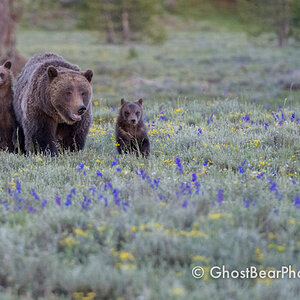
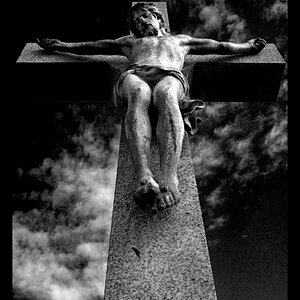

![[No title]](/data/xfmg/thumbnail/39/39470-ad2036a502fde3b73f73e2b45e674866.jpg?1619739042)
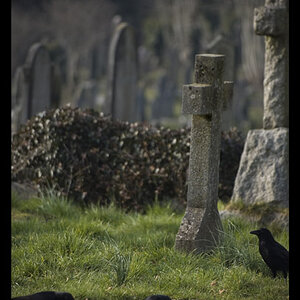

![[No title]](/data/xfmg/thumbnail/39/39471-60497f63216ffba784d91a339e9e917e.jpg?1619739043)
